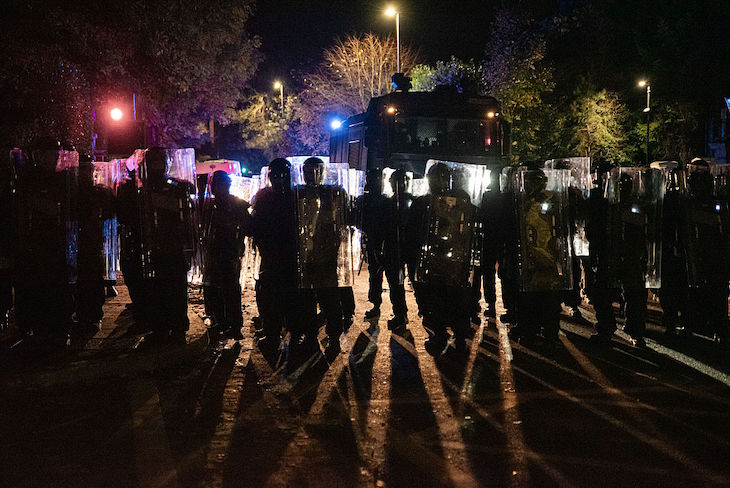Scotland’s Hate Crime Act (HCA) has, by common agreement, been an unmitigated disaster. Less than a week old, there are already calls for it to be repealed – like the equally misconceived but more awfully named Offensive Behaviour at Football and Threatening Communications (Scotland) Act 2012.
The police are now clearly hesitant of arresting anyone for hate crime
The police have been swamped with thousands of complaints, many vexatious, all of which they are pledged to investigate. JK Rowling has blown the doors off with her ‘arrest me’ tweets, but the First Minister, Humza Yousaf, attracted more hate crime complaints in the first two days than she did. SNP Ministers like Siobhan Brown have been ridiculed for misrepresenting their own law.
So it may come as a surprise that I now think the HCA may have been a rather good thing. Indeed, it may inadvertently have liberalised free speech and exposed the progressive authoritarians who seem who dominate political life in Scotland.
The police are now clearly hesitant of arresting anyone for hate crime in case it becomes a huge public row and leads to court action by women’s groups. The act outlaws ‘stirring up hatred’ against transwomen but gives no similar protection to biological women.
We also now know that ‘offensive and insulting comments’, as Humza Yousaf described JK Rowling’s rather shocking tweets, are not illegal. That’s actually a step forward. Trans activists and non-binary commentators like India Willoughby and the UN ‘trans ambassador’ Katie Neeves are appalled by this. They regard the Rowling tweets as deeply transphobic, not just for the multiple misgenderings but because, in Neeves’s view, Rowling appeared to equate trans people with criminality and paedophilia.
There is little doubt that if Rowling’s tweets of a rogue’s gallery of trans sex offenders had, in the past, been posted perhaps by someone less prominent and combative it would, at the very least have led to police recording a hate incident and very probably an attempt at prosecution. Not now. Police Scotland said no hate incident had been recorded.
It is thanks to the HCA that ordinary people in Scotland are now aware of the existence of these Orwellian ‘non-crime hate incidents’ which can be tagged to your name without your knowledge. Contrary to what we have been told, even by some police spokespeople, these are searchable in what are called ‘Enhanced Disclosure’ background checks when you apply for a job in the public sector. The Tory MSP Murdo Fraser, who found that he had been logged with a hate incident for comparing identifying as non-binary to ‘identifying as a cat’ is furious that the police have not similarly tagged Humza Yousaf. The recording of hate incidents is now such a scandal that Police Scotland have had to indicate that the recording of them is to be reviewed, as it has been in England.
Scots have been astonished to learn, moreover, that Police Scotland’s working definition of hate crime is ‘any crime that the victim or anyone else perceived as being motivated at least in part by ill will, malice or prejudice against a social group’. That no evidence is required seems an offence against natural justice as well as a misrepresentation of the actual law.
Finally, the HCA has boosted Toby Young’s Free Speech Union, which has attracted 1,000 new members this week. The FSU is installing a legal hotline for people who are fingered by police over hate crime. This is an unalloyed good thing for supporters of freedom of expression. The experience of the HCA will hopefully ensure that no similar law will be introduced in England under Labour – though regrettably the Scottish Labour leader, Anas Sarwar, says he does not support its repeal in Scotland.
The Hate Crime Act is still on the statute book, of course, but it is hard to think of a law that has had such a disastrous launch. It has been dead on arrival. It may be that when the fuss dies down the HCA may still cause trouble and chill free speech. But for now, in the first round at least, the score line reads: JK Rowling, one; Hate Crime Act, nil.









Comments